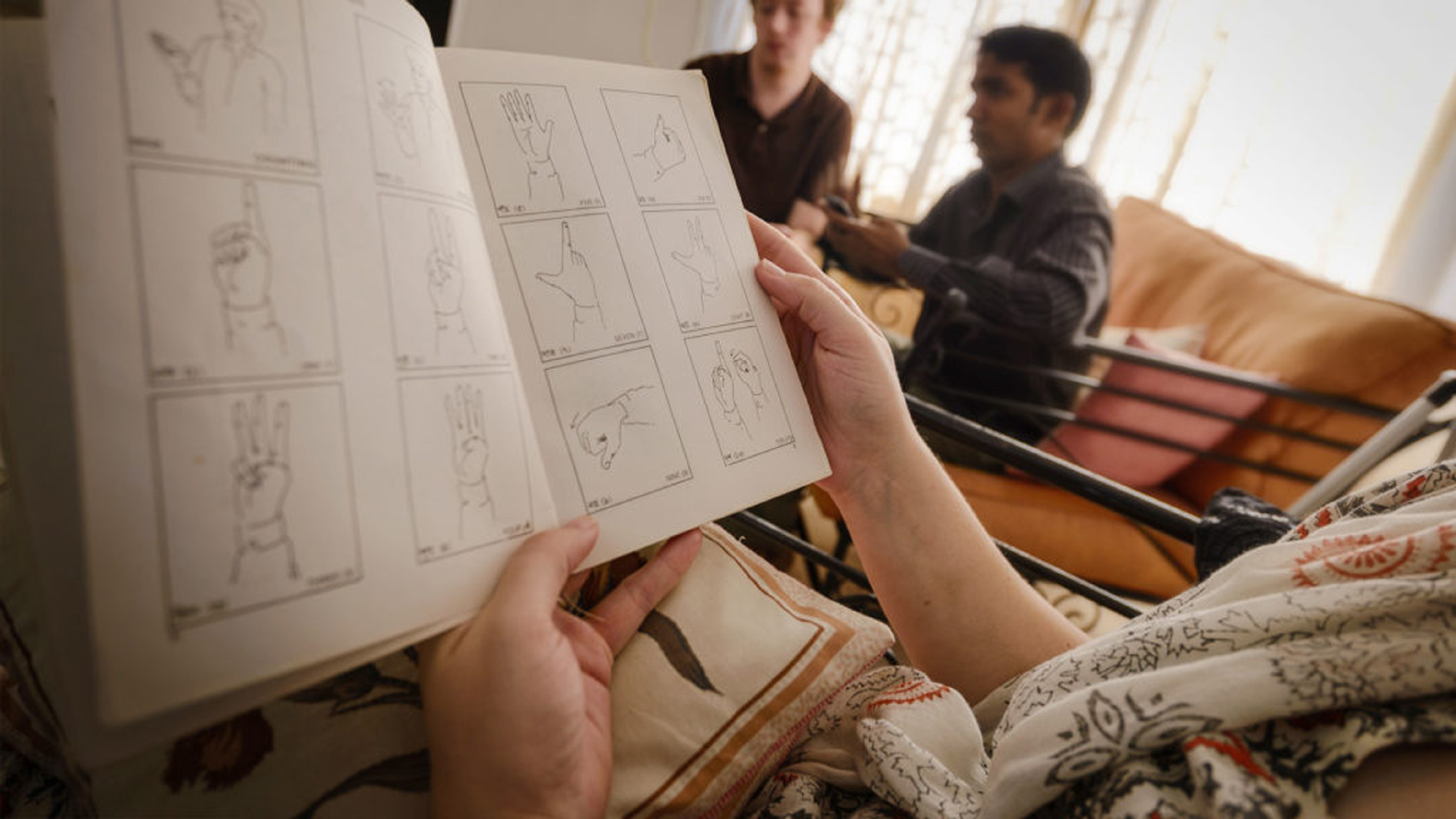
SOUTHEAST ASIA (BP) — The Thais sat in my living room — immune to the hot air and ignoring the massive mosquitoes dancing about the room — as they fixed their eyes on the Deaf man standing before them.
They smiled as he acted out the scene of Moses at the burning bush. By turning his body, making small changes in his facial expressions and looking up or down, he became Moses and God in turn. His audience was captivated by the story.
When he paraphrased what Moses said to the Lord, the Thais laughed in the same sort of way one laughs when a child says a bad word he doesn’t understand. “Sorry, God, I can’t,” he signed. “Sorry, God, I don’t talk well. Sorry, God, it’s too hard.” Finally, “Sorry, God, no.”
The audience widened their eyes in surprise and nudged each other. Who told God no? Moses was bound to get in trouble. Someone shot up their hand, asking, “Did Moses speak bad because he’s hard of hearing?”
The Deaf missionary suddenly took on an ominous posture. It was as if a black cloud built at his back as he assumed the furious authority of God, a God who expects obedience. “Who gave humans mouths? Who gives them sight or makes them blind? Who makes them deaf? Is it not I, the Lord?”
The Thais stilled. This, they had never seen.
How God turned my “no” into a “yes”
When I first considered working among the Deaf, I fidgeted while a consultant for Deaf ministry described the ideal worker: creative, expressive with their hands, willing to identify with an oppressed people group. I had those traits, but I was convinced there was no way I could share the Gospel with the Deaf. I wore a hearing aid, but I thought like a hearing person and didn’t know sign language. I didn’t have one Deaf friend.
But stories like Moses’ allow no excuses. During a two-day fast, a simple conviction settled in my heart: God created the Deaf. In His exchange with Moses at the burning bush, God clearly stated that He wants to use people the way He made them, hearing or not. And just as He created me, He could equip me and use me.
Now, I can look back on countless things I’ve learned during my two years in Deaf ministry. Here are three of them.
— No one is demanding experts.
I had assumed workers should have basic language skills and some personal experience before considering themselves qualified to work among the Deaf. However, that’s hardly true of anyone who goes to serve in foreign places. Most workers learn the Hindi language and adjust to Indian culture only after moving to India, for example, while others acquire a taste for Tunisian food and grasp social norms after they relocate to Tunisia.
Similarly, someone can move to any country and, with no prior experience, learn to communicate with Deaf nationals by using a basic expressive form of all sign languages called Sign Roots. In time, workers can pick up the country’s specific sign language, but even before they become experts they can fully share the Gospel.
One night shortly after I had moved overseas, I stood in the heart of a Thai red light district and began sharing with a Deaf girl. Although the dim bar lighting made it difficult to see, and my sign was as broken as china plates after an earthquake, the young girl watched as I acted out the Gospel. I was missing all the Deaf punctuation — pauses for breaths or beginnings of new thoughts — even easy vocabulary.
Yet somehow, God helped her understand.
“Some Koreans came here with cupcakes a couple times and told us about Jesus,” she said. “They always seemed so happy. I have a Bible at home and am thinking about following Jesus. Oh, by the way, you should sign ‘sin’ this way.”
My imperfect language didn’t interfere with the Spirit’s power to speak.
— Deafness is not a weakness.
Our work as cross-cultural evangelists shouldn’t be based on our home culture, including our hearing mindset that predisposes us to consider deafness a disability.
In Thailand, Deaf children are brought before Buddhist holy men, prayed over and hit repeatedly until the final pronouncement: “He is cursed.” Although we may not utter those words, the usual troubles with benevolent oppression arise when hearing people consider themselves saintly for “helping,” particularly among capable human beings. My experience has shown me that people I think are incapable are often the ones I can learn from the most.
Deaf culture and the many languages that encompass sign expression are merely another way of living and communicating. I pray that the proclamation of the Gospel in the Deaf way will transform them like it continues to transform me.
— God is all things to all people.
God entered our world as a hearing man, but He thinks not only the way hearing people do but also in images and signs like Deaf. I will never forget the story of a Deaf evangelist preparing to go to East Asia who was confronted by his colleagues for not praying. “Well, God is hearing,” he argued.
They stared at him. “God signs better than you do.”
The God who created the pandemonium at Babel and bridged the divisions at Pentecost offers truth in all languages and cultures, and it’s a truth that often supersedes words.
For more information or to see more stories, please go to imb.org.

















